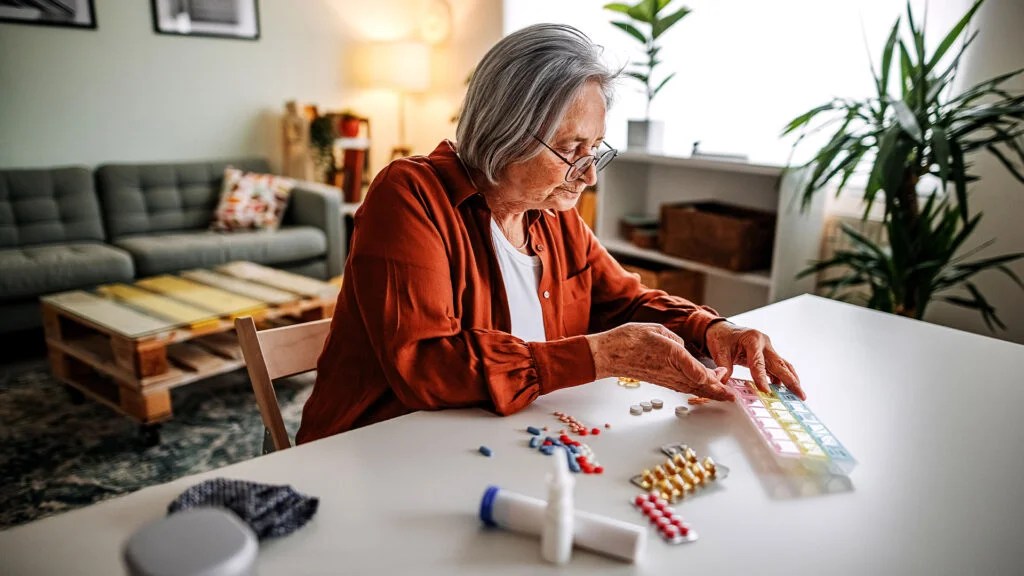
- A herbal extract called SaiLuoTong (SLT) may help improve memory and executive function in people experiencing mild cognitive impairment.
- In a small study, the supplement was reported to be effective in supporting cognitive function.
- Researchers say more research with a larger group of participants is needed to determine the efficacy of SLT.
A novel herbal extract may provide a potential treatment for mild cognitive impairment.
Researchers in Australia are
“People with mild cognitive impairment have an increased risk of dementia – over fivefold in some cases. Our findings are very promising as they show that even after a relatively short treatment period of just 12 weeks, SLT can support important aspects of memory and thinking in people with mild cognitive impairment. It is also well tolerated,” Genevieve Steiner-Lim, the lead author of the study and a NHMRC emerging leadership fellow at the NICM Health Research Institute in Australia, said in a press release.
Mild cognitive impairment can cause difficulties with thinking and memory.
Symptoms aren’t as severe as Alzheimer’s disease or other forms of dementia and people with mild cognitive impairment can often lead normal lives and take care of themselves.
Roughly 10% to 20% of people over the age of 65 have mild cognitive impairment and the risk rises with age.
People living with the condition have a greater risk of developing Alzheimer’s or related forms of dementia. Estimates suggest roughly one to two out of every 10 people with mild cognitive impairment develop dementia over a 12-month period.
While some issues with memory may be normal as people age, those living with mild cognitive impairment (MCI) may encounter more difficulties than their peers.
“There are some nuances when deciding if a person’s memory changes are normal or symptoms for MCI. Many times people will report that they are forgetting some names or thinking a little more slowly. Some of this can be normal. We are more concerned if it begins to limit their ability to function normally or if there is a change over time. Certainly, if someone is concerned, they should seek an evaluation by their primary care physician,” Dr. Jessica Kalender-Rich, a geriatric medicine physician at The University of Kansas Health System who was not involved in the study, told Medical News Today.
“It is challenging to treat MCI because not all MCI goes on to become a dementia,” she added. “Thus, we don’t always know if our treatments are beneficial because of a sample that did not develop dementia. Additionally, MCI is often under-diagnosed because it is sometimes difficult to distinguish from normal aging without specific testing and a broad history of that patient’s function.”
In the Australian study, researchers examined the safety and efficacy of a herbal supplement called SaiLuoTong (SLT). It contains extracts including panax ginseng, ginkgo biloba and crocus sativus L.
It is anti inflammatory as well as an antioxidant.
To test the effectiveness of the supplement, the researchers enlisted 78 participants who were 60 years and older and had mild cognitive impairment. The participants were either given 180mg of SLT every day or a placebo. The supplements were provided by a pharmaceutical company.
The researchers reported that after 12 weeks, those who were given SLT had a statistically significant improvement in their logical memory delayed recall scores compared with those who were given the placebo.
SLT was also found to improve performance in executive function.
“Collectively, results suggest that SLT may be useful in supporting memory retrieval and executive function in people with MCI,” the study authors
However, they say more research is needed in a larger group.
“The next step is to conduct another trial with a larger sample size and longer treatment period to test whether SLT can be used to treat mild cognitive impairment and potentially delay a diagnosis of dementia,” Steiner-Lim said.
Dr. Victor Henderson, a professor of epidemiology, population health, and neurology and neurological sciences at Stanford University who was not involved in the study, said the results are intriguing, but more research is needed.
“The overall results are interesting, maybe exciting, but also there’s a lot of room for caution at this stage,” he told Medical News Today.
The drug lecanemab has been given approval by the Food and Drug Administration in the treatment of mild cognitive impairment due to Alzheimer’s disease, but Henderson argues it isn’t an effective treatment for MCI.
“I don’t think that the medication actually works very well,” he said. “These drugs are given by intravenous infusion, they remove amyloid from the brain and the results of the study seems to suggest that they do remove amyloid from the brain. And this is one of the chemicals that been implicated in Alzheimer’s disease. But the actual difference in the trials is very, very small.”
If SLT is found to be effective in a larger sample group, one potential benefit is that the supplement can be given via tablet rather than an IV infusion.
While treatment options for mild cognitive impairment are limited, Henderson is optimistic that with more research, effective therapies will be found.
“It’s really been disappointing that we don’t have more effective forms of treatment already. On the other hand, there’s been so much research, I think the science is so much better now. There’s so much more that’s known [compared to years ago],” he said.
“I am optimistic that we will have good therapies. I think it’s a little bit hit and miss,” Henderson added. “There are a number of things that look promising in animal models… in small clinical trials like this. Most of them haven’t held up when looked at more carefully in larger, better designed trials but sooner or later something will. And it’s hard to predict whether that’s going to be two or three years or whether it’s going to take longer than that. I don’t know the answer.”